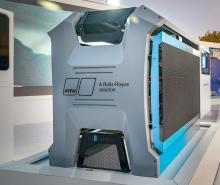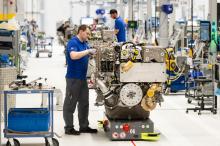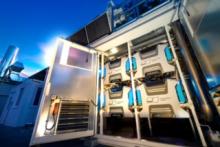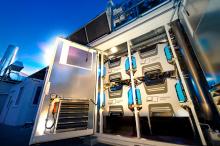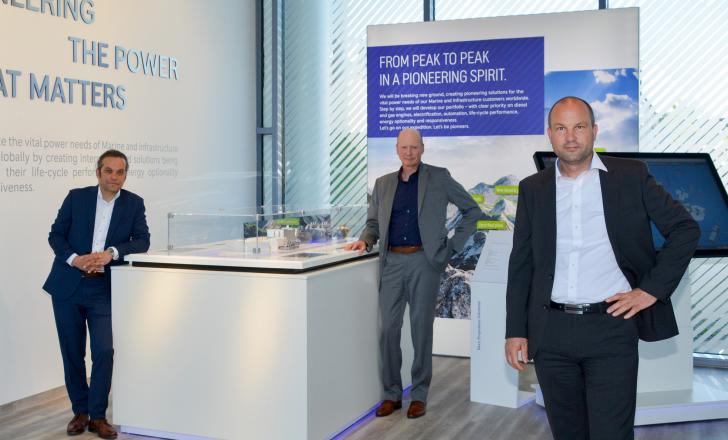
Rolls-Royce is now developing its presence in the market segment for power systems with zero emissions.
This new business unit is called Power Lab and will focus on innovative and net zero carbon drive and energy solutions. Power Lab is part of the Power Systems business.
The new operation will concentrate on the development of cutting-edge technologies for markets including infrastructure, with a strong emphasis on fuel cell systems and the production and deployment of synthetic fuels.
“We've made it our mission to leverage the trends we're seeing in our markets by creating the new drive and energy solutions our customers are looking for which support a climate-neutral future. Therefore, it is essential that the development of our product portfolio is centred on new technologies which enable this future,” said Andreas Schell, CEO of Rolls-Royce Power Systems. “The Power Lab is an important milestone on the path we're taking.”
The new organisational unit is headed by Dr Peter Riegger, who previously led the Research & Technology division and he said, “Our research engineers now have more technological freedom to develop new ideas and refine them in cooperation with customers and partners.” In this respect, long-term partnerships nurturing the development of technologies and capabilities will play a crucial role in enabling new markets to be captured.
One of the new technologies on the Power Lab's agenda involves producing and deploying fuels based on renewable energies. “Synthetic fuels can support the net zero carbon operation of both today's existing drive and energy systems and those of the future, in addition to enabling the storage of renewables-based energies. We believe in this technology and are keen to endorse its development in collaborations and research projects,” explained Dr Arne Schneemann, responsible for pre-development in the Power Lab team.
Dr Daniel Chatterjee oversees Technology Management and Regulatory Affairs in the Power Lab and also drives the company's Green and High-Tech Program. “We're placing the emphasis on improved efficiencies, alternative fuels, electrification, digitalisation and integrated system solutions with the aim of continually enhancing the eco-friendliness of our drive and energy systems and bringing them closer to their CO2 neutrality”, he said.
The Power Lab has also set its sights on the use of fuel cells in power generation and marine propulsion. “In terms of overall efficiency, the fuel cell is the undisputed front-runner and on top of that generates ultra-low to zero emissions,” said Dr Philippe Gorse, whose team is responsible for conceptual work on the fuel cell in the Power Lab. “That makes it a highly attractive option for contributing to the decarbonisation of drive systems and power generation.”
Through its Power Systems business, Rolls-Royce is also cooperating with Daimler Truck on developing carbon neutral fuel cell systems for supplying emergency power to mission-critical applications such as data centres and for covering peak loads. Since the end of last year, the partnership has been looking at taking fuel cell modules used in automobile production to create a demonstrator that will contribute to the power requirement of Rolls-Royce facilities in Friedrichshafen. This will support a further partnership’s aim of using fuel cell modules in development for driving commercial vehicles for other applications such as stationary power plants.

